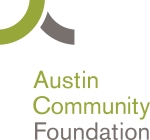Social media has given voice to the individual philanthropist and there is a great deal of good that can come from opening up the process of philanthropy and helping redefine what it means to champion a cause you personally care about.
– Kari Dunn Saratovsky, Vice President of Social Innovation at the Case Foundation
People find out about GivingCity – nonprofit professionals, PR people, young professionals, everyday folks I can’t categorize – and they ask for help. Either they want us to help publicize something or they want to pick our brains about the nonprofit community.
We are totally happy to help.
But I don’t know whether it’s because I’m an avid user of social media or because there’s a growing trend toward this, but I would say about 75 percent of the people who reach out to GivingCity are what Mashable calls “citizen philanthropists.”
Like me, these citizen philanthropists reach for the easiest and cheapest tools available for spreading the word about their cause. For us that’s been WordPress.com, Facebook, Twitter, YouTube and – in the works – a LinkedIn group. Love love love for the free social media tools that have helped us take GivingCity from a cute idea to a broadcast and publishing channel in its own right.
And like me, they’ve identified a flaw in the system, a need in the community that’s not being served from their perspective. So instead of complaining about it to their friends over tap beer at a sticky happy hour table, they start something. They do something about it.
There is a place for citizen philanthropy, whether old-school nonprofits want to admit it or not. But citizen philanthropists have a responsibility to do their research and look for ways to contribute to existing efforts – stand on the shoulders of existing nonprofits rather than dismiss them as a dysfunctional organization. Consider the possibility that nonprofits may know more than you about how to serve their clients.
Nonprofits have a responsibility, too. Open the door. Find a way to support, empower and engage these citizen philanthropists. Make it a priority. Consider the possibility that a nimble and passionate individual can push the world forward, too.
“Just think — what would the civil rights movement have looked like if it were blogged and tweeted like the Iran revolution of 2009,” asked Hargro. “What if Rev. Dr. Martin Luther King, Jr.’s passionate and prescient words were tweeted and retweeted worldwide?”
Filed under: About the magazine, Learning opportunities, State of Austin Philanthropy | Tagged: Austin nonprofit, Austin philanthropy, Austin volunteering, givingcity, nonprofit, philanthropy, volunteer opportunities in Austin | 4 Comments »




